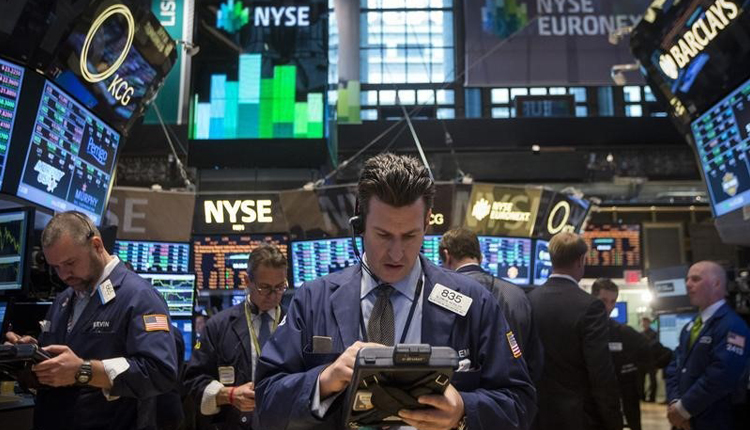U.S. stocks surged on Friday amid increasing hopes for a U.S.-China trade deal as equities posted another solid weekly gain. The Dow Jones Industrial Average jumped 443.86 points to 25,883.25 as J.P. Morgan Chase and Goldman Sachs outperformed.
The S&P 500 gained 1.1 percent to close at 2,775.60, led by the energy and industrials sectors. The Nasdaq Composite advanced 0.6 percent to end the day at 7,472.41.
Energy shares were boosted by higher oil prices. West Texas Intermediate futures rose 2.2 percent to $55.59 per barrel.
Bank stocks also rose broadly. The SPDR S&P Bank ETF (KBE) climbed 2.25 percent. Goldman Sachs, Morgan Stanley, J.P. Morgan Chase, Citigroup and Bank of America each advanced 2.54 percent or more.
The 30-stock Dow’s eight-week winning streak is its longest since the one ending Nov. 3, 2017. The Nasdaq also posted its eighth consecutive weekly gain. The S&P 500, meanwhile, closed its seventh weekly gain in eight. The indexes rose at least 2.4 percent each this week.
“The market is just getting rational again and simply rebounding from an irrational sell-off last fall,” said Craig Callahan, president at Icon Funds. He said the market was brought down late last year by fears of a Chinese economic hard landing, worries that a slowdown in China could spread around the world and concern over tighter Federal Reserve monetary policy.
“We think this is just those fears subsiding and the market being rational again,” said Callahan. “The China trade talks are helping with the first one.”
Chinese President Xi Jinping said trade talks between the U.S. and China will continue next week in Washington. This comes after a U.S. trade delegation led by Treasury Secretary Steven Mnuchin and U.S. Trade Representative Robert Lighthizer was in Beijing this week.
China and the U.S. are trying to strike a trade deal before an early March deadline. If a deal is not reached by then, additional U.S. tariffs on Chinese goods could take effect. President Donald Trump, however, is considering pushing back the deadline by 60 days to give negotiators more time to come up with a deal.
“If there is a resolution, you’ve got a lot of market participants who are anticipating a big pop-up. That’s why we continue to see money into the equity market as well,” said Daniel Deming, managing director at KKM Financial.
The moves Friday come after the Dow and S&P 500 fell on much weaker-than-forecast retail sales numbers. Data from the Commerce Department showed U.S. retail sales contracted by 1.2 percent in December, the largest monthly fall since September 2009.
On the data front Friday, industrial production for January fell 0.6 percent. Economists, however, expected an increase of 0.3 percent. Consumer sentiment data for February, meanwhile, topped expectations.
Source: CNBC
